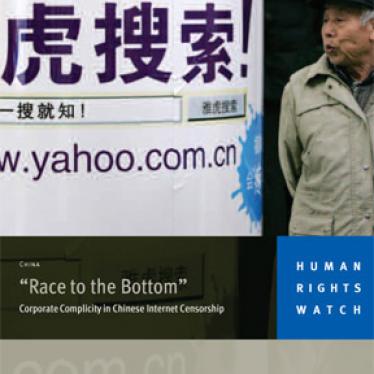(New York) - Google's unprecedented announcement today that it will not accept censorship of its search engine in China is an important step to protect human rights online, Human Rights Watch said today.
Google announced the decision after revelations of "highly sophisticated and targeted attacks" on dozens of Gmail users who are advocates of human rights in China. Google said some 20 other companies were also targets of cyber attacks from China.
"A transnational attack on privacy is chilling, and Google's response sets a great example," said Arvind Ganesan, director of Human Rights Watch's corporations and human rights program. "At the same time, this incident underscores the need for governments and companies to develop policies that safeguard rights."
Human Rights Watch said that Google's decision spotlights the importance of freedom of expression and privacy online and illustrates the persistent risk to human rights posed by governments who see the free flow of information as a threat.
Google's actions also highlight the growing dangers faced by foreign information technology firms in China where the government devotes massive financial and human resources to censor the Internet and to hunt down and punish netizens who hold views which the ruling Chinese Communist Party disagrees with. To date, Google and other companies have acquiesced to Chinese government demands to censor information.
Human Rights Watch said Google's resolve to avoid complicity with such flagrant violations of freedom of expression and association deserves praise.







